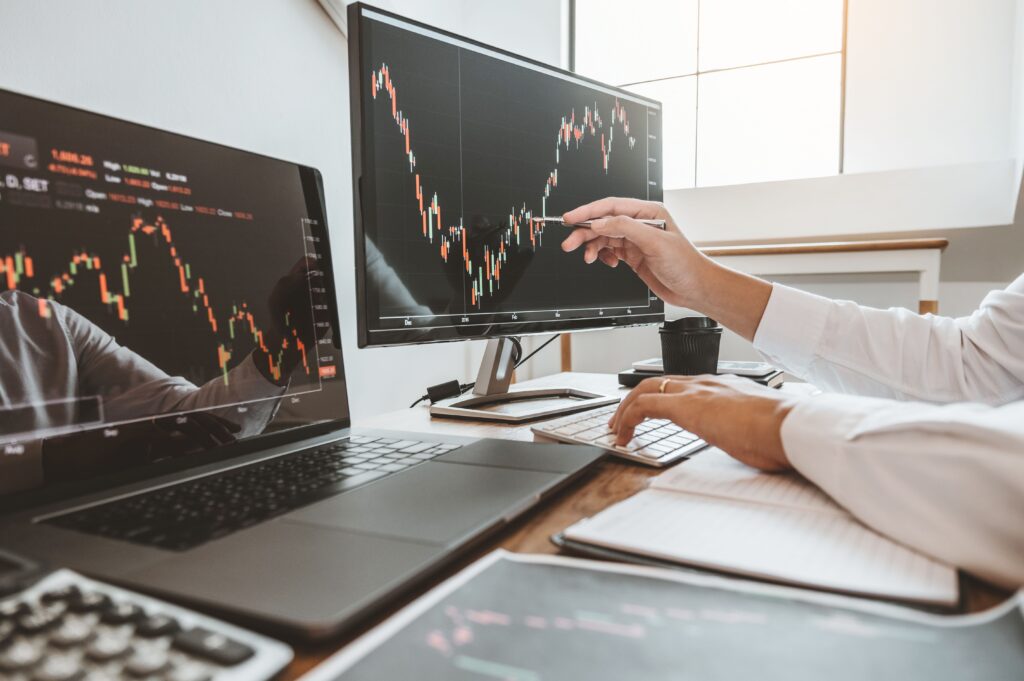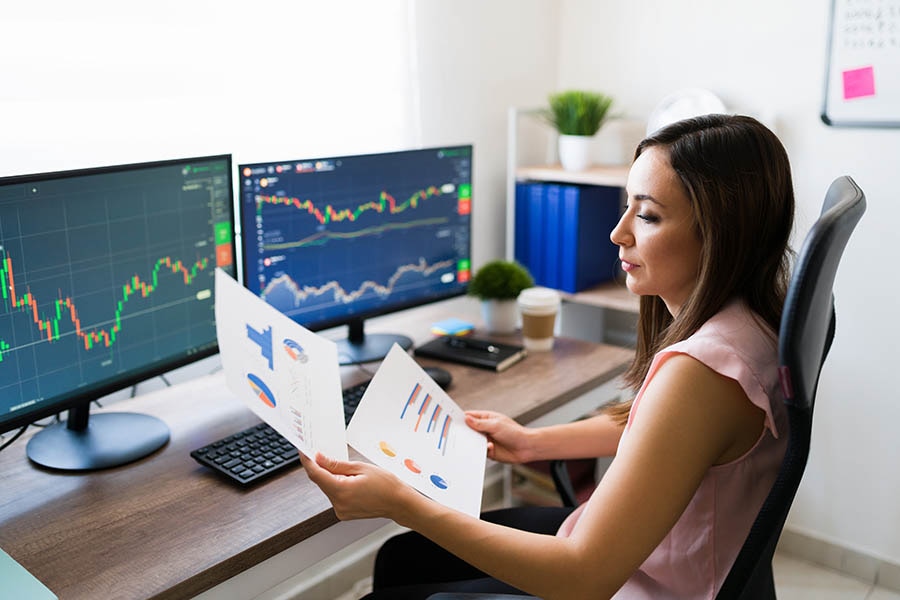
Online trading has become a popular avenue for individuals seeking financial independence and quick returns. The allure of instant profits can be enticing, especially in a world where we are constantly bombarded with stories of overnight successes and get-rich-quick schemes. The promise of making substantial gains with just a few clicks and minimal effort is undoubtedly appealing. It taps into our desire for financial freedom and a lifestyle unencumbered by traditional employment.
When choosing an online platform, selecting a reputable forex broker is of utmost importance due to their knowledge of currency markets and essential tools and resources for effective trading. It is also crucial to understand that the notion of instant profits is often more myth than reality.
The Reality Check: Dispelling Misconceptions

Dispelling the myth of instant profits is essential to set realistic expectations and prevent disappointment and financial loss. While it is true that some traders may experience occasional windfalls, these instances are far from the norm. The reality is that trading involves inherent risks, and losses are an integral part of the journey. It is crucial to approach trading with a long-term perspective and a focus on consistent profitability rather than short-lived bursts of success.
To truly grasp the reality of online trading, one must understand the principles that govern the markets. Financial markets are influenced by a myriad of factors, including economic indicators, geopolitical events, and investor sentiment. These dynamics create volatility and uncertainty, making it impossible to predict short-term price movements with complete accuracy. Consequently, relying on luck or gut feelings is a recipe for disaster. Instead, successful traders employ strategies grounded in thorough analysis, risk management, and disciplined execution.
The Importance of Education and Skill Development
Education and skill development are the cornerstones of sustainable success. Acquiring a solid understanding of financial markets, concepts, and technical analysis is vital for making informed decisions. Fortunately, there are numerous educational resources available, ranging from online courses and webinars to books and mentorship programs. Investing time and effort into learning the intricacies of trading is an essential step towards breaking the barrier of instant profits.
It is crucial to recognize that trading is not solely about technical knowledge. Developing a robust mindset is equally important. The psychological aspect of trading plays a significant role in decision-making and risk management. Emotions such as fear, greed, and impatience can lead to irrational trading decisions and impede long-term profitability. Traders must cultivate discipline, emotional resilience, and the ability to detach themselves from short-term outcomes. This requires self-awareness, continuous self-improvement, and the willingness to learn from both successes and failures.
The Role of Market Analysis and Research

Successful traders understand that thorough market analysis and research are integral to making informed trading decisions. Market analysis involves studying historical price patterns, identifying trends, and interpreting indicators to assess market conditions. By analyzing past data, traders can gain insights into potential future price movements and adjust their strategies accordingly. However, it is important to remember that past performance does not guarantee future results, and market analysis should be used as a tool for probability assessment rather than a crystal ball.
Staying informed about current events, economic data releases, and industry news is vital. Fundamental analysis helps traders understand the underlying factors that drive market movements. By keeping abreast of relevant news and developments, traders can anticipate shifts in sentiment and adjust their positions accordingly. This combination of technical and fundamental analysis allows traders to make informed decisions based on a comprehensive understanding of the market dynamics.
Managing Risk: The Key to Sustainability
One of the most critical aspects of successful trading is effective risk management. While it may seem counterintuitive, focusing on managing losses rather than chasing profits is the key to long-term profitability. A sound risk management strategy includes setting appropriate stop-loss levels, diversifying investments, and determining position sizes based on account size and risk tolerance.
Setting stop-loss orders ensures that losses are limited if a trade goes against expectations, protecting traders from significant financial harm. Diversification is another crucial risk management tool. Spreading investments across different asset classes and markets reduces exposure to any single trade or sector, mitigating the impact of potential losses. Moreover, determining position sizes based on risk tolerance ensures that no single trade jeopardizes the overall trading capital.
The Psychology of Trading: Emotions and Discipline

The psychological aspect of trading is often underestimated but plays a significant role in overall performance. Emotions can cloud j
dgment and lead to impulsive decisions that are detrimental to profitability. Fear and greed are common emotions that traders must learn to manage effectively.
Fear can prevent traders from taking calculated risks or exiting losing trades, resulting in missed opportunities or accumulating substantial losses. On the other hand, greed can lead to overtrading, chasing unrealistic gains, and taking on excessive risk. Both fear and greed can disrupt a trader’s ability to adhere to a well-thought-out trading plan and execute trades based on rational analysis.
Setting Realistic Expectations and Long-Term Goals
Setting realistic expectations is paramount in breaking the barrier of instant profits in online trading. Understanding that consistent profitability takes time and effort is crucial for long-term success. It is important to approach trading as a skill that requires continuous improvement rather than a get-rich-quick scheme.
Setting clear and achievable long-term goals is an effective way to stay motivated and focused. Goals can include financial targets, skill development milestones, or specific trading achievements. However, it is important to ensure that these goals are realistic, measurable, and aligned with individual risk tolerance and resources. Regularly reviewing and adjusting goals can help track progress and adapt to changing market conditions or personal circumstances.
Building a Solid Plan

A solid trading plan serves as a roadmap for success in online trades. It outlines a trader’s strategy, including entry and exit criteria, risk management rules, and trading time frames. Building a plan involves a combination of technical analysis, market research, and personal risk assessment.
A well-defined trading plan helps traders make objective decisions based on predefined rules rather than emotions or impulsive judgments. It provides a framework for consistency and discipline, enabling traders to stick to their strategies even during periods of market volatility or emotional turmoil. Regularly reviewing and updating the trading plan allows for adaptation to changing market conditions and continuous improvement.
Final Words
In conclusion, breaking the barrier of instant profits in online trading is not an easy job. But it doesn’t have to be impossible either! By understanding what tools and strategies are available, traders can use these resources to their advantage when taking on the markets. If you’re looking for a profitable way to invest your money without risking it all at once, consider getting involved with online trading – but make sure you understand how it works before committing any funds. Happy investing!








